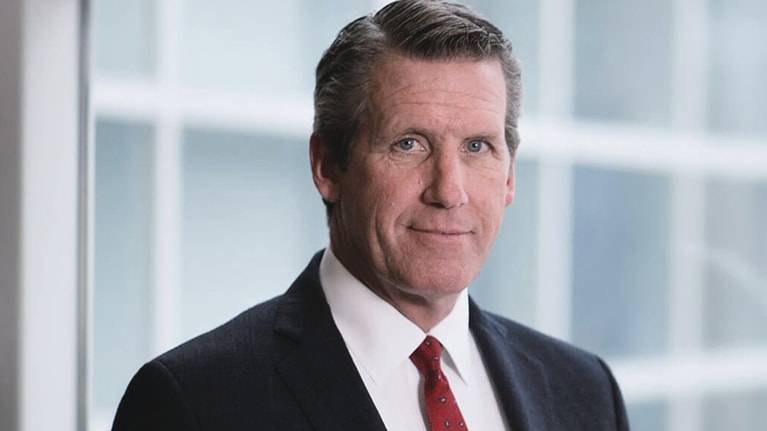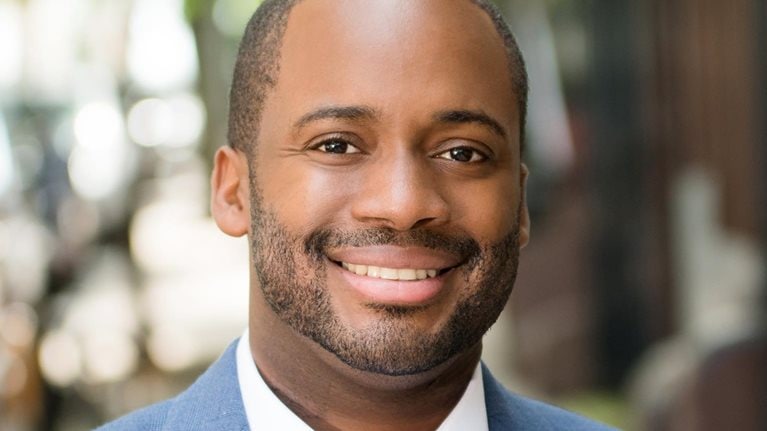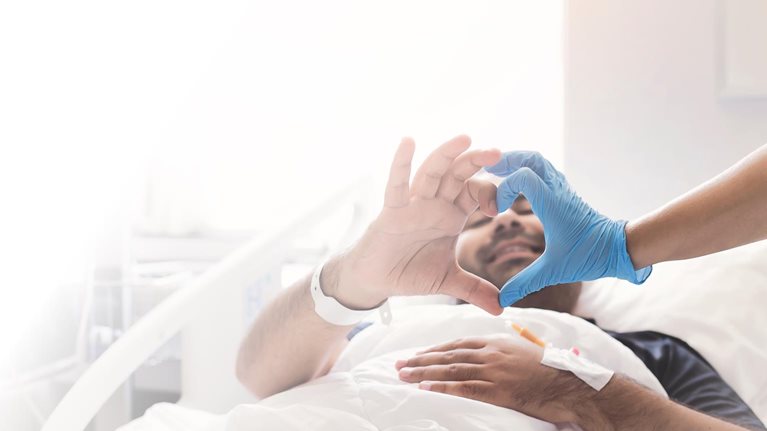Although Carlos A. Migoya spent more than 40 years in banking and a decade overseeing Jackson Health System, in Florida, he says he identifies not as a finance executive, a former city manager of Miami, or a healthcare leader but as “a people person.”
In 2011, Migoya took the reins of Jackson Health System, which had lost $419 million over three years. He took the job because he wanted to help his community, he told attendees at a Future of Leadership CEO speaker series hosted by McKinsey in collaboration with the University of Miami Patti and Allan Herbert Business School. A Cuban immigrant who arrived in America at age 11, he says that “if it wasn’t for Miami and the United States, I wouldn’t be in the situation I was in today ….I owe a lot to this country, and to this city.”
As a former banker, Migoya arrived at Jackson Health with a focus on stopping the system’s financial hemorrhaging and on improving clinical quality. The two, he said, go hand in hand. “You cannot have financial stability without high quality. When I got to Jackson ... it had completely depleted working capital; we were down to five days’ cash,” he told John Quelch, the dean of Miami Herbert Business School, and André Dua, a senior partner at McKinsey. In his first year, his team delivered a surplus of $8 million—something the system hadn’t done since 2006—and Jackson has had a surplus every year since.1
“Right now, the UHealth Jackson brand, to me, is extremely important, and how we protect and grow that brand is through patient experience and quality,” he said.2 “We’ve been profitable for ten years in a row, and our quality has dramatically improved.” Migoya attributes part of the turnaround to his honesty about his strengths and weaknesses, which included hiring an operating officer to oversee healthcare initiatives, so he could focus on the finances. “I dealt with the things I was better at. When you are at the highest levels, you have to trust your people, and you have to delegate. A CEO cannot micromanage,” Migoya said. “If they are doing their job, let ’em go and do what they need to do.”
I dealt with the things I was better at. When you are at the highest levels, you have to trust your people, and you have to delegate. A CEO cannot micromanage.
COVID-19’s impact and moving forward
Jackson Health’s hard-won financial stability faced an unprecedented challenge when COVID-19 hit: the system had a $13 million loss in March and a $30 million loss in April 2020.3 “No one was coming to the emergency room, the ambulatory-care clinic, urgent-care center, nothing,” Migoya said. Volumes took a nosedive. “When you lead—we all talk about vision and strategy, and all of that went out the door,” he said. “We were completely blind. We literally and purposefully shut down the entire business. The only thing I knew to do was leading with humility: telling people we don’t know what’s going on and working through this.”
“Every day was a different challenge,” Migoya said. “The worst challenge was the misinformation that was going on. What we were doing was fighting that more and more ….We were having town halls with all of our employees twice a week.” In addition to embracing Zoom, this need to communicate consistently with employees reflects broader-scale changes in how CEOs engage, he said.
According to Migoya, the most critical trait for future leaders is to enjoy people. “If you have been a greatly successful nurse for 15 years, it doesn’t automatically make you a nurse manager. You have to be able to acknowledge whether you like people and want to develop them.” With Jackson Health’s thousands of nurses, one area of focus is how to help them grow into executive-level positions. “The biggest challenge that we have today … is how do we create enough leaders in nursing so that we have chief nursing officers?,” he said.
Moving forward, the biggest change for CEOs will be listening to employees and attending to their needs. Facing a once-in-a-lifetime pandemic, Migoya noted, a lot of employees are asking themselves, “What do I want to do with the rest of my life?”
The move to remote work
The pandemic led some employees to reevaluate their work–life balance and articulate a desire to be at home more of the time. What that has meant is hundreds of employees at Jackson Health will never come back to an office environment. “With the technology today, we will know their productivity and … find many of them are more productive,” Migoya said. “They are sitting at home with a cup of coffee and don’t have to drive all the way in and all the way home or take the Metro or whatever else. They are a lot more effective.”
Yet some employees, Migoya said, couldn’t wait to be back in an office, and others want to work both there and at home. For ambitious employees looking for mentorship or for a way to develop their skills—especially in a teaching hospital—face-to-face contact is necessary, he advised. “The ability to hang around the coffee machine and pick up that kind of informal mentoring is important to the development of people,” he said. “If you want to grow in a career environment … you at least need to be in a hybrid environment.”
Health equity and COVID-19
“COVID-19 brought telehealth to a much faster reality,” Migoya said, even though reimbursement remains a challenge. Although UM Jackson had long had telehealth technology, many patients chose to defer care rather than engage with a doctor on-screen, he noted. “The biggest challenge is the education of the consumer on using telehealth,” he said. “Today the most common thing is for behavioral health.” This has helped Jackson to reach vulnerable populations through tele-behavioral health. Miami is unusual in that members of the homeless population have been given smartphones, he noted. That means telehealth via Zoom “is accessible to the entire population of Miami–Dade County.”
Vaccination in vulnerable communities has been another focus of Jackson’s equity outreach. After COVID-19 vaccines became available, vaccination rates were stuck at around 6.5 percent for Miami’s Black community, which accounts for 16 percent of the population.4 “I noticed that number but didn’t have the answer. I got a group together and asked, ‘What do we need to do?’” Migoya said.
Jackson decided to focus on engaging spiritual and nonprofit leaders to enlist members of the community and worked with nonprofits to coordinate busses to provide people with transportation to receive the vaccine. Jackson ended up vaccinating about 55 percent of the Black population in Miami–Dade County. “We were able to lift the number by talking and coming up with an alternative idea, along with appointments through the Internet …. All I did was facilitate getting everybody together.”
Overall, the system vaccinated 175,000 people in five months.5 In addition, Jackson Health focused on boosting employee vaccination rates through a multipart plan, which included offering $150 incentives for those who received booster shots before September 30, 2021; requiring the unvaccinated to wear an N95 mask at all times; and, ultimately, adding surcharges for the unvaccinated to employer-sponsored health insurance.
“If you are not vaccinated, there is a higher likelihood that you will get sick, and there will be a higher cost,” Migoya said. For the unvaccinated, “we created a $50 per pay period surcharge, which is $1,300 a year.” Employee vaccination rates jumped from 58 percent, in early 2021, to about 90 percent by March 2022.6 “While many applauded this, there were a lot of people that were offended by it,” he said. “In those town hall meetings, I was very direct in front of everybody, telling them why I made that decision ….So whenever you do a change, it’s important for that leader to communicate why the change was made, the need for the change, and what’s important for making those changes.”
Managing the personal in a pandemic
COVID-19 has been like “being a pilot, flying blind, with no equipment,” Migoya said. “In a time of crisis, communicate often and be humble enough when you don’t know something.” He noted that he had tested positive in March 2020. As a leader who likes to be face-to-face with others, he found this isolating. Although he was asymptomatic, it took him 39 days to test negative. “Imagine working from home 6 a.m. to midnight, by myself, with my dog. Quite stressful. You have to do everything by phone, a completely different challenge,” he said. At one point, a physician colleague pushed Migoya, an active cyclist, to ride his bike every day. Curious, Migoya asked if that would help combat COVID-19.
“I don’t know about COVID-19, but maybe if you ride your bike you’ll calm down a little more and it will make it easier,” Migoya said with a laugh. Ultimately, the pandemic has increased his desire to be humble and to listen. “The post-COVID-19 Carlos is about listening more to our employees and our leaders and understanding what we need to do differently.”


